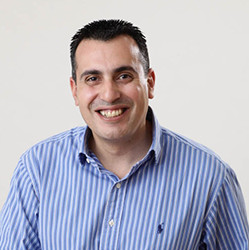Accelerating Innovation in the Public Sector
At the 2015 Action Forum Middle East Leadership Initiative Fellow, Emile Cubeisy pledged to empower 80 public sector servants in Jordan to drive new policy initiatives that will better the lives of citizens. In order to achieve this, Emile is launching the Accelerator for Public Policy Innovation to help innovative mid-level public sector servants create solutions to daily challenges in Jordan.
AGLN: Tell us what problem you’re trying to solve. Why is this needed?
Emile: The principal challenge that I’m trying to overcome is the disconnect between policy and action. We live in a world that is dealing with systemic shocks. As nations are talking about conflicts, communities need to be talking about the safety of schoolchildren, dealing with hunger in their communities, and problem solving for themselves. What needs to be done is work on both levels by empowering the middle of government to play a much more active and much more entrepreneurial role in driving change within their own communities. So with the Accelerator for Public Policy Innovation, I want to infuse the same energy and invigoration that is today in the private sector with entrepreneurship to the public sector.
I pledge to empower 80 public sector servants in Jordan to drive new policy initiatives that will better the lives of citizens. - Emile Cubeisy
AGLN: Who are you trying to reach? What areas of government do they work in?
Emile: Our area of focus are mid-level public sector servants. If we take a step back and we look at Jordan; this is a country that has historically dealt with systemic shocks and these systemic shocks have limited the ability for government to look across multiple problems at one time. When you’re defending borders, when you’re dealing with a refugee crisis, it tends to limit your focus on day-to-day citizen services. Not because you want to, but because you’re dealing with major challenges.
So I said to myself, ‘Why don’t we focus on working with those who aren’t focused on those systemic shocks?’ Those who are focused on keeping the system going. The goal of the program, the heart and soul of this program is to extend this beyond central government and to give this as a tool for municipalities to create a developmental dialogue at a municipality by municipality basis. To give them the ability to attract new resources based on their own innovation without having to be completely dependent on central government to solve their problems.
AGLN: Tell us about the importance of building leadership pipelines/unlocking potential.
Emile: I think the importance of unleashing leadership pipelines is that the capability exists. You meet exemplary people wherever you go that are doing amazing things and you realize that the potential that they’re unleashing on their communities is actually hindered from an enormous amount of inefficiency.
These individuals are typically overlooked. The system of governance is built on a centralized approach, so somewhere in the middle, everything clogs and slows down. We’re trying to get that system to work better by getting it to trust more and more in the capability of the team members within itself. I don’t think the program does anything more than facilitate the process of identifying great people and highlighting what they can do. Everything else is built around it from the ecosystem that already exists.
AGLN: Why is this a personal mission for you?
Emile: This is a personal mission for me for many reasons. First, I’ve had the privilege of serving in the private sector, the public sector, and the non-profit sector. In my experience in the public sector, I realized the enormous potential to create transformative change just from sitting behind a desk. The smallest policy initiative impacts hundreds of thousands of people.
The other part of it is that in today’s global dialogue, I think the public sector is underrepresented in terms of highlighting the innovation that they are introducing to advance societies and economies. Bringing them into the conversation as opposed to isolating them will reap huge rewards for everybody. As difficult as it is to try to implement a program for the public sector from outside the public sector, I also get a lot of pride from the fact that this is something that is going to make a huge difference on public sector servants themselves. It’s going to liberate, empower, and slowly change the language of how government works. So it is personal.
AGLN: What impact do you expect to see in the 5, 10, 20 years?
Emile: I think that some impact will be immediate and I think that some impact will be generational. I think there will be some impact at the level of the individual public sector servant, some impact will be at a much wider scale. I think the most important thing is that you’re creating forward motion. Ultimately, time is relative and as long as we’re moving forward and helping society move forward, it’s all is going to converge together to achieve a really meaningful outcome.
Other Recent Posts
The final day of the 2019 Resnick Aspen Action Forum closed with a celebration of intergenerational perspectives that included presentations from young leaders and a discussion between AGLN Moderator and South African Fellow Heather Sonn and Keith Berwick, long-time friend and founding executive director of the Henry Crown Fellowship. ...
When Anousheh Ansari was seven years old, she drew a photo of a rocket flying through space and set her eyes on exploring outer space being astronaut. There was no space program in Iran at the time and the chances of Ansari becoming an astronaut were slim. “I like to prove people wrong,” said Anousheh Ansari on stage at the 2019 Resnick Aspen Action Forum. On ...
The 2019 John P. McNulty Prize laureates, five extraordinary individuals, shared their courageous and bold social impact ventures at the Resnick Aspen Action Forum on Wednesday night. McNulty Foundation President Anne Welsh McNulty, who founded the award in honor of her late husband, described the McNulty Prize as a call to action. “You have shown ...
Borders are a part of life –– whether internal, invisible, geo-political or otherwise. Borders can help and they can harm. Borders are powerful and they can also be a form of power. Understanding the borders that are around and within us can lead to greater self-awareness and open the path for making great change in the world. With inspiration from the ...
1. Draw inspiration from other participants Over 1,000 Action Pledges have been made since the inaugural Action Forum in 2013. Watch the video below on some highlighted Action Pledges. 2. Find your sweet spot The most exciting Action Pledges come from what we call your sweet spot, the intersection of your passions, talents, and your community’s ...


Leave a Comment